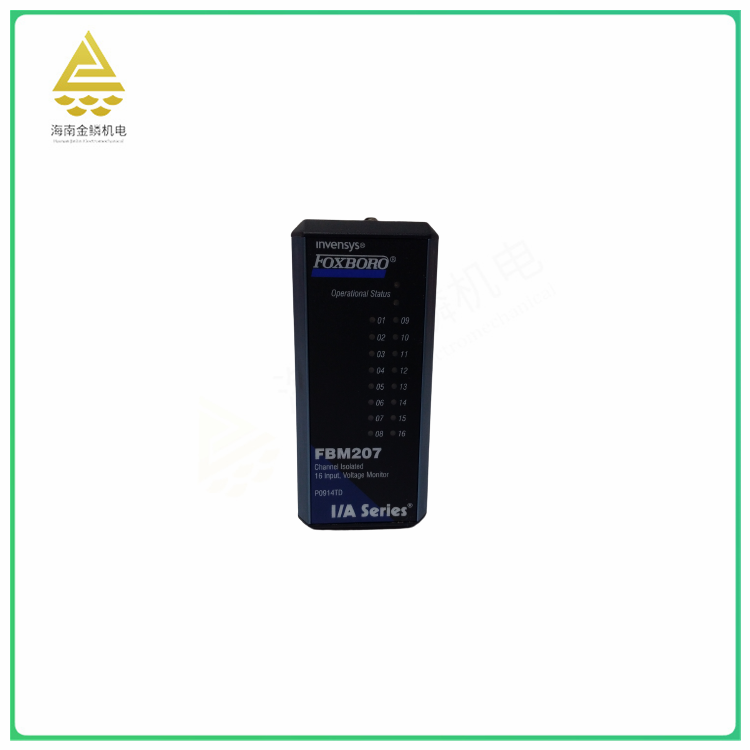The FBM207-P0914TD is a thermal resistance input/output module commonly used in industrial automation systems to measure and monitor temperature. A thermal resistor is a temperature sensor that measures the ambient temperature based on the properties of its resistance as it changes with temperature. Here is some specific information about the FBM207-P2914TD:
Working voltage: 220V or 36V.
Applications: Suitable for the chemical and petroleum industries, where temperature monitoring is essential for controlling chemical reactions, storing liquids and gases, and ensuring safe operation of equipment.
Module type: Input/output module, capable of receiving and sending signals.

The FBM207-P0914TD thermal resistance input/output module is an electronic component or device for measuring and controlling temperature. Its advantages and disadvantages are as follows:
Advantages:
High Precision measurement: The thermal resistance input/output module provides high precision temperature measurement, usually with high resolution and accuracy.
Wide temperature range: Thermal resistors can operate over a wide temperature range and are suitable for a variety of application scenarios.
Good linearity: there is a good linear relationship between the resistance value of the thermal resistance and the temperature, making the temperature measurement more accurate.
High stability: The FBM207-P0914TD thermal resistance material has good stability and can maintain its performance for a long time, reducing the need for calibration.
Easy interface: Thermal resistance input/output modules usually provide standardized interfaces and communication protocols for easy integration with other devices and systems.

Cons:
FBM207-P0914TD Nonlinear error: In some temperature ranges, the linear relationship between the resistance value of the thermal resistance and the temperature may have a certain nonlinear error, which needs to be compensated or calibrated.
Slow response time: The response time of thermal resistors may be slow compared to other temperature sensors and is not suitable for rapidly changing temperature measurements.
Easy to be affected by the environment: The measurement results of thermal resistance may be affected by environmental factors, such as temperature gradient, thermal conductivity, etc.
Higher cost: FBM207-P0914TD The cost of the thermal resistance input/output module may be higher than some simple temperature sensors.
It is necessary to evaluate the advantages and disadvantages of thermal resistance input and output modules according to the specific application scenarios and requirements, and select the appropriate module or solution. If the accuracy and stability of temperature measurement are required, the thermal resistance input/output module may be a suitable choice.







